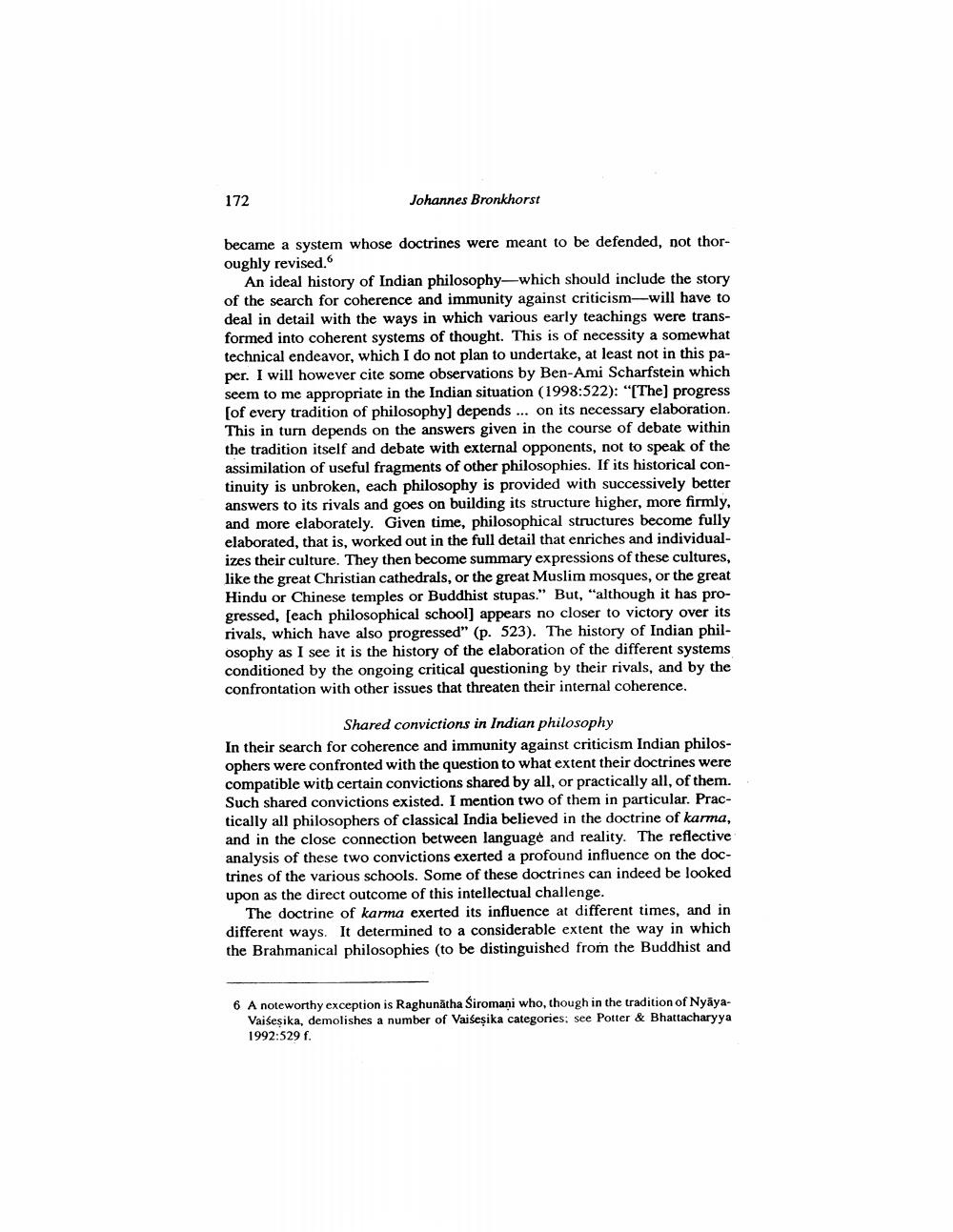________________
172
Johannes Bronkhorst
became a system whose doctrines were meant to be defended, not thoroughly revised.
An ideal history of Indian philosophy-which should include the story of the search for coherence and immunity against criticism will have to deal in detail with the ways in which various early teachings were transformed into coherent systems of thought. This is of necessity a somewhat technical endeavor, which I do not plan to undertake, at least not in this paper. I will however cite some observations by Ben-Ami Scharfstein which seem to me appropriate in the Indian situation (1998:522): "[The) progress [of every tradition of philosophy) depends ... on its necessary elaboration. This in turn depends on the answers given in the course of debate within the tradition itself and debate with external opponents, not to speak of the assimilation of useful fragments of other philosophies. If its historical continuity is unbroken, each philosophy is provided with successively better answers to its rivals and goes on building its structure higher, more firmly, and more elaborately. Given time, philosophical structures become fully elaborated, that is, worked out in the full detail that enriches and individualizes their culture. They then become summary expressions of these cultures, like the great Christian cathedrals, or the great Muslim mosques, or the great Hindu or Chinese temples or Buddhist stupas." But, "although it has progressed, (each philosophical school] appears no closer to victory over its rivals, which have also progressed" (p. 523). The history of Indian philosophy as I see it is the history of the elaboration of the different systems conditioned by the ongoing critical questioning by their rivals, and by the confrontation with other issues that threaten their internal coherence.
Shared convictions in Indian philosophy In their search for coherence and immunity against criticism Indian philosophers were confronted with the question to what extent their doctrines were compatible with certain convictions shared by all, or practically all of them. Such shared convictions existed. I mention two of them in particular. Practically all philosophers of classical India believed in the doctrine of karma, and in the close connection between language and reality. The reflective analysis of these two convictions exerted a profound influence on the doctrines of the various schools. Some of these doctrines can indeed be looked upon as the direct outcome of this intellectual challenge.
The doctrine of karma exerted its influence at different times, and in different ways. It determined to a considerable extent the way in which the Brahmanical philosophies (to be distinguished from the Buddhist and
6 A noteworthy exception is Raghunatha Siromani who, though in the tradition of Nyāya
Vaiseșika, demolishes a number of Vaiseșika categories: see Potter & Bhattacharyya 1992:529 f.




